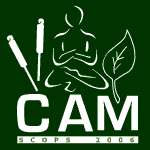 Complementary and alternative medicines (CAM) are frequently given to children and adolescents for reputed benefits for hyperkinetic and concentration disorders such as attention deficit hyperactivity disorder (ADHD).
Complementary and alternative medicines (CAM) are frequently given to children and adolescents for reputed benefits for hyperkinetic and concentration disorders such as attention deficit hyperactivity disorder (ADHD).
Researchers in Arizona and Australia assessed the evidence based on the results of studies providing an acceptable standard of evidence. Continue reading Review: CAM for ADHD →
 Standard therapies are of limited value for obsessive compulsive disorder (OCD).
Standard therapies are of limited value for obsessive compulsive disorder (OCD).
Researchers at Swinburne University of Technology, in Australia, reviewed the value of CAM, self-help techniques, and lifestyle interventions. Continue reading CAM treatment of obsessive compulsive disorder →
 There are few effective treatments for hot flushes in post-menopausal breast cancer survivors.
There are few effective treatments for hot flushes in post-menopausal breast cancer survivors.
During the annual meeting of the American Society of Clinical Oncology, researchers at Wake Forest University School of Medicine, in Winston-Salem, North Carolina reported the results from a pilot study. Continue reading St John’s wort and hot flushes in women with breast cancer history →
 Emily Matthews, a reader of this blog, provides this overview of depression and complementary treatment options.
Emily Matthews, a reader of this blog, provides this overview of depression and complementary treatment options.
About 20 million Americans suffer from clinical depression. Low levels of serotonin, a neurotransmitter, are thought to contribute to depression. Depression is also associated with diseases like diabetes, heart disease, chronic pain, hormonal imbalance, hypoglycemia, stress, impaired thyroid function, environmental toxins, and unhealthy lifestyles. Continue reading CAM options for treating depression →
 Researchers at the University of Rochester Medical Center, in New York, reviewed non-drug treatments.
Researchers at the University of Rochester Medical Center, in New York, reviewed non-drug treatments.
Let’s focus on herbals. Continue reading Limited value of herbals to lower blood pressure →
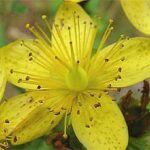 It’s one of the most popular herbal supplements for treating depression. Dr. Perry Halushka from the Medical University of South Carolina has reviewed the scientific literature, including the many drug interactions associated with its use.
It’s one of the most popular herbal supplements for treating depression. Dr. Perry Halushka from the Medical University of South Carolina has reviewed the scientific literature, including the many drug interactions associated with its use.
But the biggest problem is the lack of standardization and reliability of the contents of commercially available brands of St. John’s wort. Continue reading The biggest problem with St. John’s wort →
Continue reading The biggest problem with St. John’s wort →
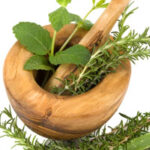 Researchers at the University of Leeds, in Woodhouse, evaluated written information provided with commonly used herbal products in the UK in advance of a European Union Directive that tightens regulations for some herbal products, including requirements to provide safety information. Continue reading Herbal supplements: Caveat Emptor →
Researchers at the University of Leeds, in Woodhouse, evaluated written information provided with commonly used herbal products in the UK in advance of a European Union Directive that tightens regulations for some herbal products, including requirements to provide safety information. Continue reading Herbal supplements: Caveat Emptor →
 Researchers at the University of Hong Kong, in China, studied the risk for an herbal:warfarin interaction in patients with non-valvular atrial fibrillation. Continue reading Effects of herbals on warfarin therapy →
Researchers at the University of Hong Kong, in China, studied the risk for an herbal:warfarin interaction in patients with non-valvular atrial fibrillation. Continue reading Effects of herbals on warfarin therapy →
 Some herb remedies seem useful, according to researchers at the University of Modena and Reggio Emilia, in Italy. Continue reading Review: Herbal treatments for prementrual syndrome →
Some herb remedies seem useful, according to researchers at the University of Modena and Reggio Emilia, in Italy. Continue reading Review: Herbal treatments for prementrual syndrome →
 It’s a long list compiled by researchers at RMIT University in Victoria, Australia. Continue reading Drug interactions with St John’s wort →
It’s a long list compiled by researchers at RMIT University in Victoria, Australia. Continue reading Drug interactions with St John’s wort →
 The American Psychiatric Association’s Task Force on Complementary and Alternative Medicine reviewed the evidence and report their findings.
The American Psychiatric Association’s Task Force on Complementary and Alternative Medicine reviewed the evidence and report their findings.
Here are their findings. Continue reading CAM for major depressive therapy →
 Researchers at Goulds Naturopathica, in Hobart TAS, Australia, reviewed the evidence. Continue reading CAM (not St John’s wort) to treat depression →
Researchers at Goulds Naturopathica, in Hobart TAS, Australia, reviewed the evidence. Continue reading CAM (not St John’s wort) to treat depression →
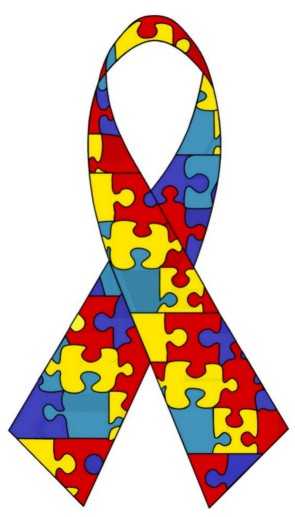 It’s just a report on 3 patients, but it’s important because some people with autism are already taking St. John’s wort. Continue reading First report: St. John’s Wort for autism →
It’s just a report on 3 patients, but it’s important because some people with autism are already taking St. John’s wort. Continue reading First report: St. John’s Wort for autism →
 Real and hypothetical concerns exist.
Real and hypothetical concerns exist.
Dr. Mark Moyad (photo), who is Director of Preventive and Alternative Medicine at the University of Michigan Medical Center in Ann Arbor, puts it into perspective. Continue reading Do we overhype drug-supplement interactions? →
 Here’s the rationale supporting this study by researchers at the Mayo Clinic, in Rochester, Minnesota.
Here’s the rationale supporting this study by researchers at the Mayo Clinic, in Rochester, Minnesota.
St. John’s wort treats mild-to-moderate depression. Antidepressants are often used to treat irritable bowel syndrome (IBS). But no one has studied the effects of St. John’s wort in patients with IBS. Continue reading St. John’s wort to treat IBS? →
 Evidence for CAM to treat depression, anxiety, sleep disorders, and attention-deficit/hyperactivity disorder (ADHD) has been reviewed by researchers at Louisiana State University Health Sciences Center, in Kenner.
Evidence for CAM to treat depression, anxiety, sleep disorders, and attention-deficit/hyperactivity disorder (ADHD) has been reviewed by researchers at Louisiana State University Health Sciences Center, in Kenner.
Here’s what we know. Continue reading Review of CAM for behavioral health →
 Approximately 6.8 million Americans suffer from generalized anxiety disorder. It’s not surprising then that there’s interest in finding effective natural treatments.
Approximately 6.8 million Americans suffer from generalized anxiety disorder. It’s not surprising then that there’s interest in finding effective natural treatments.
The Global Neuroscience Initiative Foundation, in Los Angeles, California, reviewed the evidence for passionflower, lysine, magnesium, kava, and St John’s wort, alone or in combination. Continue reading Nutritional herbal supplements for treating anxiety →
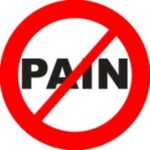 Chronic pain is associated with depression.
Chronic pain is associated with depression.
Self-treatment of that depression with St John’s wort makes pain patients prone to a drug interaction with the potent pain drug, oxycodone (OxyContin), according to this study by researchers at the University of Turku, in Finland. Continue reading St. John’s wort interaction with oxycodone →
 Cytochrome P450 2D6 (CYP2D6) is a liver enzyme responsible for the metabolism of approximately 30% of all drugs.
Cytochrome P450 2D6 (CYP2D6) is a liver enzyme responsible for the metabolism of approximately 30% of all drugs.
Researchers at the University of Arkansas for Medical Sciences in Little Rock studied the effect of CYP2D6 on the metabolism of several herbal supplements and the risk of drug interactions. Continue reading CYP2D6-mediated herb-drug interactions →
 Researchers at the Fred Hutchinson Cancer Research Center, in Seattle, Washington tell us, “There have been no prospective studies of the association between the long-term use of these supplements (omega-3 fatty acids and others] and breast cancer risk….” until now.
Researchers at the Fred Hutchinson Cancer Research Center, in Seattle, Washington tell us, “There have been no prospective studies of the association between the long-term use of these supplements (omega-3 fatty acids and others] and breast cancer risk….” until now.
This and other recent breakthroughs are summarized below. Continue reading Fish oil lowers risk of breast of cancer →
Complementary and Alternative Medicine: Fair, Balanced, and to the Point
 Complementary and alternative medicines (CAM) are frequently given to children and adolescents for reputed benefits for hyperkinetic and concentration disorders such as attention deficit hyperactivity disorder (ADHD).
Complementary and alternative medicines (CAM) are frequently given to children and adolescents for reputed benefits for hyperkinetic and concentration disorders such as attention deficit hyperactivity disorder (ADHD).


 It’s one of the most popular herbal supplements for treating depression. Dr. Perry Halushka from the Medical University of South Carolina has
It’s one of the most popular herbal supplements for treating depression. Dr. Perry Halushka from the Medical University of South Carolina has 


 It’s a long list
It’s a long list 
 It’s just a
It’s just a 


 Cytochrome P450 2D6 (CYP2D6) is a liver enzyme responsible for the metabolism of approximately 30% of all drugs.
Cytochrome P450 2D6 (CYP2D6) is a liver enzyme responsible for the metabolism of approximately 30% of all drugs.